 Arkady Zilberman, creator of Language Bridge and a former simultaneous interpreter in Russia, addresses what is perhaps the greatest impediment to adult foreign language learning success: cross-translation to and from one’s native language. Few learners are probably aware this sub-concious process goes on at all, but Arkady’s extensive experience learning languages, interpreting, and experimenting on himself and other learners have proven that it does indeed occur. As he points out in our interview, even many seemingly successful foreign language learners still translate to and from their native language, but can just do so at such a rate that they can’t perceive the process.
Arkady Zilberman, creator of Language Bridge and a former simultaneous interpreter in Russia, addresses what is perhaps the greatest impediment to adult foreign language learning success: cross-translation to and from one’s native language. Few learners are probably aware this sub-concious process goes on at all, but Arkady’s extensive experience learning languages, interpreting, and experimenting on himself and other learners have proven that it does indeed occur. As he points out in our interview, even many seemingly successful foreign language learners still translate to and from their native language, but can just do so at such a rate that they can’t perceive the process.
It is no secret that the vast majority of adult foreign language learners fail to ever reach fluency in their target tongues, and there are many theories behind this abysmal success rate. In Arkady’s view, there is one primary root cause: 95% of adults are “foreign language incapable”, unable to learn foreign languages easily (if at all) through traditional or even modern methods because their brains adopted logical (as opposed to visual) thinking as they matured into adults.
As the name implies, Language Bridge attempts to create a “bridge” over this logical-thinking barrier, turning off sub-conscious translation to and from one’s native language, while also fostering visual thinking in learners who have long since lost such an ability.
Language Bridge is currently available in the following versions, each available free for 6 months:
- English localized for Native Chinese speakers
- English localized for Native Russian speakers
- English localized for Native Spanish speakers
- English localized for Native Czech speakers
- Russian localized for Native English speakers
Listen to the Show
Subscribe in iTunes
Subscribe in Stitcher
Read the Transcript
John Fotheringham: [0:06] This is Episode seven of the Foreign Language Mastery podcast. I’m your host, John Fotheringham. In today’s show I interview Arkady Zilberman, the creator of Language Bridge. For a transcript of this episode and more tips, tools, and tech for learning any language, go to languagemastery.com. Here is the phone interview originally recorded February 8th, 2011.
John: [0:33] Hello there.
Arkady Zilberman: [0:34] Hi.
John: [0:36] Good to talk to you again.
Arkady: [0:37] Thank you John.
John: [0:38] How have you been?
Arkady: [0:40] Oh, good. Working a lot on my method now and I published a few articles, prepared presentation for a round table discussion and there is good news, I have now found an investor and a marketing group.
John: [0:57] Oh, congratulations. Fantastic.
Arkady: [0:59] Yeah. So it’s moving, it’s moving.
John: [1:00] Yes.
Arkady: [1:02] I have also decided that we will now offer all versions of Language Bridge software free for six months so that both the students and teachers will have more options to try it and I hope that in this way I will get more testimonials. By the way, yesterday on that Kirsten’s blog, one user of Language Bridge has published his testimonial. His name is Mick and it’s a fantastic testimonial. I never met him, but he has given that his description of his experience and it’s a very unique testimonial because he used both, Pimsleur method and the Language Bridge method.
John: [1:59] I think it’s wonderful you were able to do the interview with Kirsten because I think she has a pretty established reputation now in the industry and I think she can help bring your work into the ears and lives of more people.
Arkady: [2:17] Yes, that is very helpful I understand, but however of course I also understand that there are problems because the linguists would prefer to use the methods which they know and it’s normal.
John: [2:35] Right. Let’s use that as our jump?off point then. Comparing Language Bridge with “the methods that a linguist would know.”
Arkady: [2:45] It’s different in that I think that cross?translation is the main barrier in learning a language. Here cross?translation is a very interesting term because as I describe it, it actually has nothing to do with translation.
John: [3:09] Right. We should add that you’re formerly a simultaneous interpreter. I think it’s important for the listeners to understand that you have that background.
Arkady: [3:20] Yes, actually I have a degree in science and I worked for nearly 20 years as a simultaneous interpreter in the former Soviet Union and during my work I made hundreds if not thousands of experiments and I have found that simultaneous translation is actually not using two languages, but using one language at a time. It sounds strange, but that was the foundation of the Language Bridge. [4:02] In other words, on your blog you have a guest post by Antonio and I remember it starts with, “Is your native language a help or a hindrance?” Now, answering your question I will most definitely say that it is a hindrance and here I will also say that although the statistics is that only five percent of people successfully learn a foreign language, only five percent.
[4:39] If this statistic is confirmed, for example, by the founder of Total Physical Response System, Dr. James Asher. And I was trying to find an answer to this question, why it is so that some people very easily learn a foreign language and most have great difficulty in it.
[5:07] I came to the conclusion that it’s because our native language becomes a barrier, especially in adults. In other words, we try to add a foreign language to the native language and that’s why actually when we learn a foreign language we use bilingual information that is we use two languages. Necessarily we use native language and we actually learn foreign words as a translation to and from the native language.
[5:45] We try to add, to say, English to a native language. In my case, my native language is Russian, so when I thought that if any Russian tried to learn a foreign language most of them try to add English to Russian and that wouldn’t work.
[6:04] It works only in very rare cases, only five percent. 95% have great difficulties. It’s interesting that I first noted it and I called it cross?translation, actually its subconscious activity when learning a foreign language you always use, maybe without even special efforts, it’s just subconscious, you don’t notice it. Here I can give you one example.
[6:38] Rosetta Stone, a very famous program, a great program, and they start showing you some pictures, to say, a horse, a table, and anything. And they then give the word for the picture and the word in English.
[7:01] The assumption was that if you exclude the native language from the learning process that you can learn as a child in my opinion it’s strong. I think it’s impossible because subconsciously, most people will subconsciously first see this word ‘table’ in their native language. In my case in Russian I will see that it is “stohl” and then they will see it as a table. This is very hard alleviate. We actually do have a special tool to solve this problem and at this point I want to mention the great book and video by Norman Doidge.
[7:59] He is a psychologist and a medical researcher and in his book he studied all scientists work for the last 50 years. Following them, he actually came to the conclusion that adults have great difficulties in learning a foreign language because of, as he calls it, “tyranny of the mother tongue”.
John: [8:31] Yes. I love that quote.
Arkady: [8:33] Yes. Actually that explains, I didn’t formulate it that way. I knew for many years and I tried to explain it to linguists. It’s very hard, by the way, to a linguist to understand it. It may be very hard for you, because linguists never had that problem.
John: [8:58] Well, see, this is actually one thing I think we disagree on, because my background is in linguistics, but most linguists that I know don’t actually speak a foreign language. I think the definition of “linguist” is very broad. You have a degree in linguistics, you’re a linguist, or are you someone who speaks one or many foreign languages, then you’re a linguist. [9:22] So, I think your definition right now you’re talking about is for the latter. Someone who has learned one or many foreign languages well. For that person, they might not understand why others have a hard time, is that correct?
Arkady: [9:37] Not quite. As a linguist I may call… let’s broaden that term and just tell any English teacher or foreign language, actually, teacher or those linguists who write books on the lessons, programs for learning a foreign language, because they never encountered that problem, it’s very hard for them to understand. They think that the cross?translation cannot be sold and so let’s forget about it. [10:19] That’s, well, the normal condition for any student, to overcome his native mother tongue tyranny. But then, if we agree on that, we may mention that briefly that in the history there were a few methods, which overcome this impediment and I mentioned in those articles on Kirsten’s blog that Callan method is one method, then the Crazy English if you know about that one from China.
John: [10:59] That was one that wanted to also talk about. My experience with the Crazy English method, I’m actually quite skeptical because it actually doesn’t seem to fit with other things you’ve said in that you talk about how the listen and repeat after me method is going to become extinct because it obviously does not work. I don’t see how that’s different from Crazy English. From what I’ve seen there’s a guy on the stage and he’s yelling out phrases and then the whole audience is just repeating after him.
Arkady: [11:28] Well, yeah, it’s very different and here’s why. First of all, it’s not learning its rehearsing. Someone had given a very good term. It’s not learning English. When you repeat in a crowd at that time, because you’re all together and you repeat at the same time, it’s very unusual activity and because of that your subconscious cross translation to and from your native tongue is turned off. [12:02] But neither the founder of Callan method nor Mr. Li, the founder of the Crazy English, didn’t know actually how it works. They came to it from the practical point of view. It works. So they have quite a number of followers, but of course it’s not the method which would be recommended to learn English in the stadium.
John: [12:30] I see. So your point is that that method turns off cross translation…
Arkady: [12:33] Yes.
John: [12:34] But it’s not enough. It’s not a complete way that you would recommend of actually going about it.
Arkady: [12:39] Yeah, of course. First of all, it cannot be used as a basis for the blended learning because there is another very important term and I think that in the future the blended learning when we have to help to learn English in china to 350 million people, young adult learners, then the blended learning probably is the only alternative. [13:08] The blended learning means that you have to use software with prerecorded lessons which a learner can use at home 24/7 anytime, anywhere and he will have also an option to sign up for some public classes maybe or if he can afford for private lessons. But most of them will use public lessons where they can ask questions, where they can solve their problems, where they can be tested and get the feedback of the results of their self?testing.
[13:50] So the blended learning, I think, is also the only alternative in my point for the future of meeting the demand, the gigantic demand, in learning English, which in that article is described as English mania. Probably you know of that term also.
John: [14:10] In my experience as a teacher I made every effort to try to deemphasize my role and deemphasize the importance of a teacher, emphasize the importance of the individual learner’s motivation, attitude, and choice of materials that they are interested in, which I think is something we agree on, but they were not sold. [14:30] It was very difficult to convince the learners that they actually don’t need a teacher or at least that a teacher cannot force the language into their brains. Only their brain can do that at a subconscious level.
[14:44] I think that that’s actually, in terms of perception, in terms of marketing that’s a major hurdle that I think all of us still have to overcome in addressing especially the Chinese market.
Arkady: [14:57] I totally agree with you, however, I think that first of all we have to select one point and maybe to direct students to that point. The point is, which we just briefly mentioned before, that we have to answer the question, “What is the main barrier?” [15:17] We have to explain the conventional…by the way, your presentation about the conventional methods, that is a great, great presentation. However, we should first solve that problem and the problem is we have to explain it, maybe demonstrate it, and then to give the tool that we must probably explain a little bit more.
[15:49] When we talk about simultaneous repetition it’s not clear enough because actually the essence here not in simultaneous repetition. The essence is that we use three actions at the same time.
[16:09] So a learner reads to say the text on the screen, the learner hears in their headset, necessarily in their headset, and repeats at the same time. By performing three actions at the same time the tyranny of the mother tongue is silenced. It is turned on automatically. There is no way and I determined it just experimentally. And thousands and thousands of customers already learned English now, especially most of them are in Russia, but now I try to bring this method to other countries, especially to China.
[16:51] That’s why I have already produced a software which I, at this point, even offer for free. This software is localized into Chinese, it’s localized into Spanish, into Russian, and one teacher actually localized it into a Czech language.
[17:11] So if you use those three actions at the same time the subconscious cross translation would be turned off. That is the main point and to explain that maybe that will change the attitude of Chinese learners because they know 4,000 words. Actually, every college graduate knows 4,500 words and he cannot speak English.
John: [17:38] Actually, they’ve memorized the translation of those words.
Arkady: [17:43] Exactly.
John: [17:44] They can see it on a piece of paper and know what it means, but if they hear the same word they won’t know what it is.
Arkady: [17:50] Exactly. So that should give a starting point.
John: [17:55] So I guess one of my curiosities would be from turning off cross translation and getting those three…well there is actually two forms of input and one form of output all done simultaneously, from that stage to actually understanding the meaning of what you’re saying or hearing. That’s something that I’d really like to understand in a more cognitive, linguistic sense.
Arkady: [18:20] I will explain how it is accomplished. First of all, when you do all three of those actions at the same time, and you are very clearly described it’s two inputs and one output, that actually activates your both right and left brain. Why you don’t have any problems because the program is localized. That means that everything what is there is in two languages. And although I say that we have to separate languages and your native language, mother tongue is there, but it is used, I would say in a different mode. [19:07] For example, if you start a new lesson you can read with your eyes in your mother tongue and imagine the situation because you do not pronounce the word. Actually when in the class I always even recommend to keep your tongue between your teeth like this so that you cannot pronounce the word.
[19:34] By the way, that opens your visualization again. You visualize the text. You do not read it or remember it. Then you immediately go to the next reel where you see the same text in English and you read it, you listen to it, and you repeat it. So you know what it’s about because you were introduced to the images of the lesson in your native tongue.
John: [20:04] Right. So the context is clear, but then once you actually get into the drills the idea is you’re not going to be translating word for word. You’re trying to build that new language center by using your mouth, your ears, and your eyes.
Arkady: [20:18] Exactly. Exactly. More than that. There is one great additional tool built into the software. Whenever you have a problem with the word or with the meaning of the word you can click on it with your right mouse button and translation into the mother tongue will appear, but only for 10 seconds. [20:42] So you will see it and the time is enough to create the image and because you hear this word and you continue pronouncing the whole sentence you even don’t notice that you got the image not the translation. You don’t remember translation. You don’t see it. You don’t work in it. It is given to open your…actually to activate your visual capability again and many learners have noticed that their even memory was improved because their visual capacity was returned back.
John: [21:22] Interesting.
Arkady: [21:23] So there’s no problem in understanding. That’s, again, a difficult part to understand because some teachers in those comments and everywhere they see a contradiction here. That I say that we have to silence the mother tongue and at the same time I give everything in two languages. [21:47] There’s no contradiction at all. I give it in a totally different environment, totally different application.
John: [21:54] Right. That’s something that I think needs to be very clear to the end user and to the teacher. There is two purposes here of the native language and the target. The native is there only for creating that mental context.
Arkady: [22:07] Exactly. Yeah, John, but we have to maybe go into some details and everything. We have to write about, we have to explain it, because even to a linguist first it’s hard to understand because it’s so different from what we use now. When you will read that testimonial of Mick’s, and it’s interesting he mentioned that he noted that sometimes while repeating after the speaker, he was one or two words ahead of it. [22:43] That is a very interesting observation made by many, many learners. Because when it becomes automatic, when the speech center of the target language, in this case English language, is formed and you see or hear the image, you are in the visual mode. The word appears on the tip of your tongue as if by itself.
John: [23:08] Right.
Arkady: [23:09] He was surprised. He couldn’t even understand where it comes from. I want to explain to him, to you, to everybody it comes from the language speech center in the brain, which is formed as a result of a three?action approach…
John: [23:27] Right.
Arkady: [23:28] …three actions at the same time.
John: [23:30] Linguistically speaking, it would also be called spreading.
Arkady: [23:33] There are two different types of spreading. One spreading you are talking about is actually the case when you still have both, your native language and your target language. Still the spreading can work there. Because there are many, many students who are learners who actually speak from this, I would call, “two?language center.” Because, there is no such thing, but it seems to them that they speak because they translate quickly enough.
John: [24:12] Right.
Arkady: [24:13] But it takes a lot of brain power…
John: [24:15] Yes.
Arkady: [24:16] …and very few can do it. Most fail and they just stop learning a foreign language because they cannot do it. [24:23] Now, the spreading when you have separate languages, when you actually do a new language speech center in the brain…by the way, it starts working even when you know 300 words. I just experimentally determined it, by many hundreds of students who have noted that after about seven or eight lessons they already feel that some of their expressions come to them automatically. So you don’t need much effort to pronounce something which you feel.
John: [25:07] I think even a lot of language enthusiasts, teachers, linguists or even our basic same camp we’re all on the same side of basically saying that the traditional way doesn’t work. But even on this side of the wall there are still, obviously, many subdivisions. [25:25] I think one of those major subdivisions is listen first, speak later, or speak as soon as possible. But I think, that as your method has proved and as many others out there have proved, the disadvantage of speaking soon has been highly exaggerated.
Arkady: [laughs] [25:41] Not only exaggerated, but it’s not quite true because…I think you were one of the first who mentioned that one of the main reasons of the conventional methods didn’t produce desired results is because they considered foreign languages as information…
John: [26:06] Yes.
Arkady: [26:07] …although it is a skill.
John: [26:08] Yes.
Arkady: [26:09] But if it is information, and you base all your research on this assumption that it is information, then we have a lot of problems here. I would like here to mention one of the most, I would say, scientifically based methods in the world, and that is the Pimsleur method. You very correctly describe it that it was introduced in 1967 in a most scientifically based paper. [26:46] But, the Pimsleur method, a very scientific method, was correct because at that time there was only one theory, one assumption that a foreign language is information. If you consider it as information, his method is right.
[27:09] But if you consider it that it is a skill, and you have to separate…you have to salvage his mother tongue, and you can actually very quickly, in a few months, you can start forming a new language speech center, and you can learn a language in less than a year and be absolutely proficient in it. Then his method becomes obsolete.
[27:36] It doesn’t meet the current level of knowledge. A foreign language is a skill. If you learn it as a skill, then his famous graduated interval recall theory is not applicable any more. It’s not information.
John: [27:56] Right.
Arkady: [27:57] If you remember, once again, that learner Mick he said he was keeping learning Pimsleur three times in a row; all three levels, and he was keeping forgetting it. Why, because as information, especially bilingual information, it’s our protective mechanism. We are doomed to forget everything while in 30 days 90 percent of information is lost. Especially information which was not used. So that is the catch?22.
John: [28:34] I think that’s why so many of these people continue to be frustrated. Despite so much effort, they still fail.
Arkady: [28:43] Exactly.
John: [28:44] What is it they’re failing at? They’re failing at a mission impossible, which is…
Arkady: [28:49] Yes.
John: [28:50] …memorize an almost infinite number of facts…
Arkady: [28:53] Yes.
John: [28:54] …about an organic system which is not fact based.
Arkady: [28:57] You know that Chinese learners are very motivated. They are very capable. They are learning English maybe four hours a day and still no result because the system is wrong. Now, why it is wrong is because you can memorize words, and they do memorize words, but speech is a subconscious process where memory doesn’t play practically any role.
John: [29:27] Right.
Arkady: [29:28] We confuse two different processes. When we speak, we do not…how to say a subconscious process…
John: [29:37] Yep.
Arkady: [29:38] …we do not recall words. We do not use memory. The words appear on the tip of our tongue called forward, if you will, by the image, by the feeling, by association. We speak in chunks. Another interesting point that in language we do not learn words at all. A separately taken word doesn’t have any meaning. We learn by chunks, by sentences.
John: [30:12] Absolutely. An attempt to memorize English or any language through linear memorization of individual words is doomed to failure.
Arkady: [30:20] Yes, but, nevertheless, that’s all of what we do, and that’s very strange. And actually to me, it’s very painful even to observe it because it seems to me so illogical.
John: [30:34] It’s illogical from the point of view of what works to learn a language. It’s very logical from the point of view of what’s easiest to teach and test in a formal setting. [laughs]
Arkady: [laughs] [30:47] Yes, I understand it.
John: [30:49] I think the only thing that ultimately will work is to show people that it does work. I think the comment you had from Mick…
Arkady: [30:55] Yes.
John: [30:56] …that’s exactly what you’re forgetting, it’s people that have actually used it and said, “Wow, it actually works.”
Arkady: [31:04] John, I have hundreds and hundreds of such testimonials. Some of them are on the website. What is interesting that I received actually, in the form of a testimonial, a whole essay from one of the Chinese learner. He told me that he came to Canada to continue his education. When he came here, after being the best student in China, after having the highest score in all those certificates which are necessary to graduate, he came to Toronto to find out that he doesn’t understand English and he cannot speak English. [laughs]
John: [31:59] Yep.
Arkady: [32:01] And he was shocked.
John: [32:03] Yeah.
Arkady: [32:04] He started to look for the cure. He was lucky. He found Language Bridge. He started using it. It helped him, and in response, he sent me his testimonial. What’s also interesting is in his essay he described that actually simultaneous repetition was used for centuries in Asian culture for different things. Not only for martial arts…
John: [32:33] Yeah.
Arkady: [32:34] …for learning music, for learning mathematics, for learning how to sing. For many, many things it was used there for centuries. So they’re very well familiar with it. Somehow, in our culture we never came to this. I came across it by pure chance because I worked as a simultaneous interpreter. That’s why I came to it. But actually this approach has a lot of history behind it. It has a lot of logical explanation and rationality, I would say. It is a scientific approach.
John: [33:18] It’s a human approach, I would also say, in that it mimics how we actually learn all of our physical skills.
Arkady: [33:28] Exactly.
John: [33:29] You mentioned martial arts, and I often use that analogy. Can you imagine trying to teach somebody how to perform a certain movement by explaining you need to bend your elbow at 45 degrees…
Arkady: [laughs] [33:41]
John: [33:42] …and apply 24 kilograms of force, and shift the weight from your… But that’s exactly how we try to teach a language. It’s absurd.
Arkady: [33:51] Yes, yes, and you know what? Actually, I have used a few times this phrase, that when you start learning and teaching by Language Bridge, then all your students become language?capable again. And here, let’s come to that point again and maybe elaborate on that a little bit more. That you were going ask me about that…
John: [34:16] Yes.
Arkady: [34:17] I just remind you about that 95?5 percent ratio. What is that?
John: [34:21] That’s one thing you bring up often, is that 95 percent of adults are “foreign language incapable.” And I think my key point, and this is something that much of foreign language mastery is about, is that, yes indeed, obviously, 95 percent, or I would even say higher in many populations, percent of adults fail to learn a foreign language to fluency. Absolutely, there’s no argument there. [34:51] However, why is that the case? I think that’s where we might slightly differ in our views. I do agree that cross?translation is a huge part of it, no doubt. But I think I ascribe attitude, motivation, and what materials you use as also very large percentages of that. And a lot of this is, of course, experience. A lot of it is anecdotal. But some of it is scientific, but it’s hard to nail down any of the effective factors in language learning scientifically. I mean, is the only way to… [overlapping discussion]
Arkady: [35:30] No, no, John, I cannot agree with this, and here is why. If you talk about motivation, then you cannot find more motivated people than Chinese learners…
John: [35:42] Well, motivation…
Arkady: [35:43] …and they have the greatest difficulties.
John: [35:45] Absolutely. But when I say attitude, I don’t just mean only motivation. I don’t think those are synonymous. I think motivation is one subset of attitude. But when I talk about attitude, I mean attitude towards language learning, attitude towards one’s self?identity, attitude in terms of, do you think you can actually learn a foreign language? [36:04] I want to put China aside for a moment, because I think they are, absolutely, they are very motivated. I’m talking more about North American learners of Japanese, or North American learners of Chinese or other languages. And I think across the board, most of them do believe, A, languages are hard. They think that they cannot learn a foreign language, which is a big part of the support of saying that they’re language?incapable. I think a lot of that’s a self?fulfilling prophecy, where you say, “Oh, I can’t do this,” and then, of course you can’t.
[36:35] But I think we’re parsing hairs here. We agree that no doubt, 95 percent of people fail. Whether that’s because it’s attitude, or because it’s method only, who knows? I think we could probably argue all day about it. I’m more interested in the solution.
Arkady: [36:49] And John, OK, I heard what you said, but let me give my point. And maybe if you will just listen and try to use more intuition than your past experience, just intuition and logic, maybe you will see it from a different angle. [37:13] I don’t believe that attitude and motivation is a very…it is important, but not crucial. It’s not of paramount importance, because they failed, and that is a statistical fact. And we already know that one of the main reasons is their subconscious cross?translation, or the tyranny of their mother tongue.
[37:37] Now, there’s another explanation, and maybe it will make it more easier to digest this new approach. Most people, adults especially, at the age of 18, and they become logical. What that means is, because we learn so many subjects in school , because we learn everything, we think everything, and because the ego at this point becomes our controller, everything compare to the past, to our past experience. And whatever comes into our field of vision, we evaluate according to our own experience. And so, we become very, very logical.
[38:28] Now, it’s just statistical fact that five percent of people remain visual. I cannot find explanation to this, but that is their nature, maybe their human nature, or that probability theory and the distribution curve. Those people who are very visual, they can learn a foreign language by any methods. That’s why you are a linguist, I am a self?made linguist, because we both are visual.
[39:07] We can learn, and I can learn any language in a very short time, because I am visual. And I actually determined it experimentally, because when I do simultaneous repetition, do you know what happens? I see what the speaker is telling me. I see it, I don’t hear it.
[39:32] And I can give you one case, and it looks like it was a practical case, like, anecdote. I knew very little German at that time, and there was a mistake in the program. And one of the lecturers turned out to be German instead of English. And I started to translate simultaneously from German into Russian, and I practically didn’t notice the difference, because it doesn’t matter to me.
[40:04] I don’t hear the words, I see the images. And I translated it, and then I started to think how it happened. I don’t hear the words, I see the image. So, those five percent are lucky people who somehow preserve that ability, and they can learn any language.
[40:30] Now, what happens? And that’s why I disagree with your approach, and it was a lot of published scientific articles about that…again, it’s because when their languages were information. Now, when it is more a skill, we do not have really research in this field. Because if you consider it as a skill, if you use a method similar to Language Bridge, when you turn off, you silence the mother tongue, then you become visual again.
And that is why a few times I have written about it, explained it in my lectures, in my [indecipherable 41: [41:07] 19] I.Q. classes, that this method restores your language capability. Any learner who follows the Language Bridge instructions becomes visual again. He becomes language?capable again. He can learn. Anybody can learn a language. And of course, motivation and attitude is important, but it is not a deciding factor.
John: [41:43] The point you make where anybody, regardless of their attitude, if they actually do this method will learn, I think that’s a key point.
Arkady: [41:51] Exactly, yes.
John: [41:53] I think, though, back to my point, to get somebody to spend the time to do it in the first place, that’s one of the first obstacles. That absolutely is going to be attitudinal. They have to be motivated, and they have to want to do it, and they have to believe it’s going to work, and I think that…
Arkady: [42:10] Yes, John, yes I understand. You are absolutely right, but you know what? And it would be difficult, but we should remember that any chain reaction of dramatic change in any field requires only four or five percent of a sample to believe. And the more we get such testimonials, and we’ll get them in hundreds and thousands, the more it will become popular. Besides, the Language Bridge software is organized in a very special way, and a very unusual way. You would never find such features, I will briefly now name them here, in any other software program. [42:58] For example, you can print out any lesson or any drill. You can transfer it to any mp3 player, and you can work on it not necessarily on a computer. You can work on it on your mp3 player, on a phone, anywhere, anytime. And besides, if you understand the fundamentals of it, you can actually take a lot of free resources on Internet. There are thousands, millions of free resources they are underused. Why? Because, students, learners, they don’t believe that they can do it.
[43:41] Now, we have to show it. We have to explain them why they could not, and why they can now. That’s what I try to show to you. And if I will be successful to show it to you, then maybe together we’ll be successful to show it to somebody else. That’s the chain reaction.
John: [44:03] Yes, I’m converted [laughs] .
Arkady: [44:05] Oh, great!
John: [44:07] I have no doubt in the efficacy. I think when you’re 99 percent agreed with somebody, then it’s interesting to talk about the one percent you disagree.
Arkady: [44:15] Yes, yes, and that’s a great pleasure, John, and that’s why I am very grateful now for this interview with you. Because I found that since you created that presentation about the conventional methods, and you are looking for something new, that’s why I was sure that you will be interested in this approach.
John: [44:38] I am indeed. Well, thank you for getting in touch and being patient with me getting back to you. And I look forward to talking again.
Arkady: [44:47] Thank you very much, thank you.
John: [44:49] All right, good luck. [music]
John: [44:55] For a transcript of this episode, and more tips, tools, and tech for learning any language, go to languagemastery.com.
Mo’ Info
For more information, visit Arkady’s site, Language Bridge, and check out his 3-part article series on Kirsten Winkler’s blog.
 ]]>
]]>
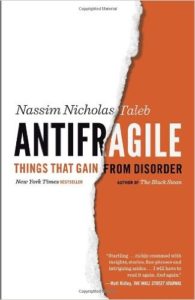 Antifragile: Things That Gain from Disorder is the first book I’ve read by Nassim Nicholas Taleb, but it will certainly not be the last. The book is actually the fourth in a four-volume series on uncertainty the author calls “Incerto”, which also includes the previous works Fooled by Randomness (2001), The Black Swan (2007–2010), and The Bed of Procrustes (2010). Taleb sums up the basic premise of the book as follows:
Antifragile: Things That Gain from Disorder is the first book I’ve read by Nassim Nicholas Taleb, but it will certainly not be the last. The book is actually the fourth in a four-volume series on uncertainty the author calls “Incerto”, which also includes the previous works Fooled by Randomness (2001), The Black Swan (2007–2010), and The Bed of Procrustes (2010). Taleb sums up the basic premise of the book as follows:
 One of the most frustrating challenges I have encountered throughout my diverse career in education, government, startups, consulting, and nutrition is the widespread use of clunky, confusing language. In many ways, learning the ins and outs of Academese, Bureaucratese, Corporatese, Legalese, and Medicalese have proven much more frustrating than Japanese and Chinese!
One of the most frustrating challenges I have encountered throughout my diverse career in education, government, startups, consulting, and nutrition is the widespread use of clunky, confusing language. In many ways, learning the ins and outs of Academese, Bureaucratese, Corporatese, Legalese, and Medicalese have proven much more frustrating than Japanese and Chinese!


 One of the most common questions I receive is, “What do you mean by ‘mastery’?”
One of the most common questions I receive is, “What do you mean by ‘mastery’?”
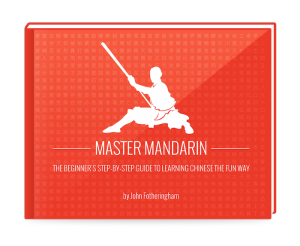
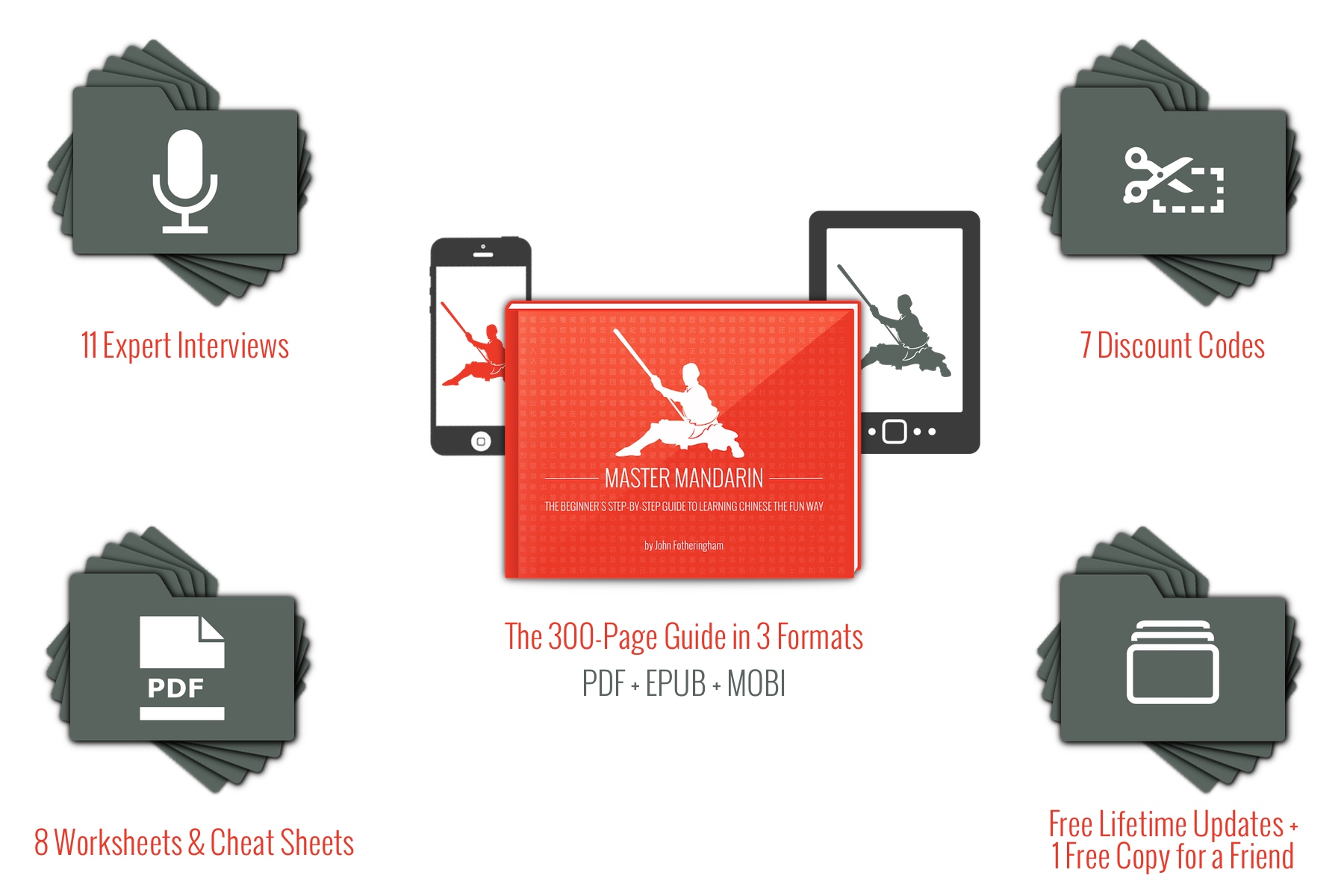
 You don’t need to spend thousands on classes. You don’t need boring textbooks. You don’t need to be good at languages. And you don’t have to move to China or Taiwan (though that’s great if you can). What you need are the right tools, “S.M.A.R.T.” goals, adult-friendly methods, and fun materials suited to your interests that will help you internalize the language naturally, understand what you hear, and speak with speed and confidence. This is precisely what Master Mandarin provides.
You don’t need to spend thousands on classes. You don’t need boring textbooks. You don’t need to be good at languages. And you don’t have to move to China or Taiwan (though that’s great if you can). What you need are the right tools, “S.M.A.R.T.” goals, adult-friendly methods, and fun materials suited to your interests that will help you internalize the language naturally, understand what you hear, and speak with speed and confidence. This is precisely what Master Mandarin provides. Hola querida o querido lector, aquí Santiago. Ojalá disfrutes de estos artículos originalmente escritos por John (y también por algunos autores invitados), y espero que te sean muy útiles en tu aprendizaje de idiomas.
Hola querida o querido lector, aquí Santiago. Ojalá disfrutes de estos artículos originalmente escritos por John (y también por algunos autores invitados), y espero que te sean muy útiles en tu aprendizaje de idiomas. 
 You’ve tried, but failed to learn Japanese. For some reason it just doesn’t seem to stick for you?
You’ve tried, but failed to learn Japanese. For some reason it just doesn’t seem to stick for you?


 In today’s show, I chat with the man, the legend, the one and only, Italian polyglot Luca Lampariello. Over the past 20 years, Luca has reached a very high level in 9 foreign languages: English, French, German, Spanish, Swedish, Russian, Dutch, Portuguese, and Mandarin Chinese. Luca is full useful tips and strategies, which he shares in depth at his excellent blog, The Polyglot Dream.
In today’s show, I chat with the man, the legend, the one and only, Italian polyglot Luca Lampariello. Over the past 20 years, Luca has reached a very high level in 9 foreign languages: English, French, German, Spanish, Swedish, Russian, Dutch, Portuguese, and Mandarin Chinese. Luca is full useful tips and strategies, which he shares in depth at his excellent blog, The Polyglot Dream.
 Aaron Myers is the man behind The Everyday Language Learner, a wonderful blog that aims to help the average Joe (and John, and Rosemary, and…okay, you get the idea) learn a foreign language in fun, effective, efficient way. Above all else, Aaron strives to empower learners by showing people how to learn, not just what. To that end, Aaron has written heaps of excellent blog posts, a host of useful language learning guides, including The Guide to Getting Started, Activities and Strategies for Everyday Language Learners, The Guide to Self-Assessment, and Stage: Before You Move Overseas. He also offers private language coaching for those who want more personalized help.
Aaron Myers is the man behind The Everyday Language Learner, a wonderful blog that aims to help the average Joe (and John, and Rosemary, and…okay, you get the idea) learn a foreign language in fun, effective, efficient way. Above all else, Aaron strives to empower learners by showing people how to learn, not just what. To that end, Aaron has written heaps of excellent blog posts, a host of useful language learning guides, including The Guide to Getting Started, Activities and Strategies for Everyday Language Learners, The Guide to Self-Assessment, and Stage: Before You Move Overseas. He also offers private language coaching for those who want more personalized help.
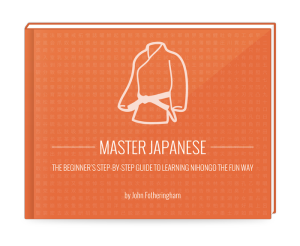
 Donovan Nagel is an Applied Linguistics graduate hailing from rural Queensland, Australia (the amazing soundscape you hear in the background of our interview) and the man behind the language learning site and community, The Mezzofanti Guild, and the Arabic learning site, Talk in Arabic. Donovan named the site after one of his heroes, Cardinal Giuseppe Gasparo Mezzofanti (1774 – 1849), a hyperpolyglot who Donovan felt a strong connection to given their mutual background in theology, Greek, Hebrew, and Arabic, and the fact that they both focus on learning via contact with real people.
Donovan Nagel is an Applied Linguistics graduate hailing from rural Queensland, Australia (the amazing soundscape you hear in the background of our interview) and the man behind the language learning site and community, The Mezzofanti Guild, and the Arabic learning site, Talk in Arabic. Donovan named the site after one of his heroes, Cardinal Giuseppe Gasparo Mezzofanti (1774 – 1849), a hyperpolyglot who Donovan felt a strong connection to given their mutual background in theology, Greek, Hebrew, and Arabic, and the fact that they both focus on learning via contact with real people.
 I previously wrote about
I previously wrote about  Kevin Morehouse is the man behind LanguageHero.co, a site dedicated to helping language learners start their journey, find allies, and stay the course. Kevin is a certified Italian teacher and soon to be certified in Spanish as well. In our interview, Kevin and I discuss:
Kevin Morehouse is the man behind LanguageHero.co, a site dedicated to helping language learners start their journey, find allies, and stay the course. Kevin is a certified Italian teacher and soon to be certified in Spanish as well. In our interview, Kevin and I discuss:
 Learn More About Kevin Morehouse
Learn More About Kevin Morehouse I’ve been blogging about language learning for 6 years, teaching languages for over 10, and learning languages myself for 15. During this time, I have heard lots of excuses (and made a fair number myself I must admit) about why one/I cannot learn a language well. The most common three by far have been:
I’ve been blogging about language learning for 6 years, teaching languages for over 10, and learning languages myself for 15. During this time, I have heard lots of excuses (and made a fair number myself I must admit) about why one/I cannot learn a language well. The most common three by far have been: On August 28, 1963, The Reverend Martin Luther King, Jr., an American activist, humanitarian, and pastor gave what would become one of the most famous speeches of all time and a defining moment in the Civil Rights Movement. The masterful address, usually known simply as “I Have a Dream”, was delivered at the Lincoln Memorial in front hundreds of thousands of people who had joined the “March on Washington”. If you haven’t watched the speech in a while, please take a moment now to relive a bit of history and honor King’s memory. And for extra points, read the speech in 12 different languages:
On August 28, 1963, The Reverend Martin Luther King, Jr., an American activist, humanitarian, and pastor gave what would become one of the most famous speeches of all time and a defining moment in the Civil Rights Movement. The masterful address, usually known simply as “I Have a Dream”, was delivered at the Lincoln Memorial in front hundreds of thousands of people who had joined the “March on Washington”. If you haven’t watched the speech in a while, please take a moment now to relive a bit of history and honor King’s memory. And for extra points, read the speech in 12 different languages:
 Richard Simcott is an accomplished polyglot with impressive abilities in over 16 languages, a feat that led HarperCollins to call him “one of the most multilingual people from The United Kingdom”. Richard shares his language learning wisdom, tips, interviews, and super-sized doses of motivation on his popular YouTube channel and on his website, SpeakingFluently.com.
Richard Simcott is an accomplished polyglot with impressive abilities in over 16 languages, a feat that led HarperCollins to call him “one of the most multilingual people from The United Kingdom”. Richard shares his language learning wisdom, tips, interviews, and super-sized doses of motivation on his popular YouTube channel and on his website, SpeakingFluently.com.


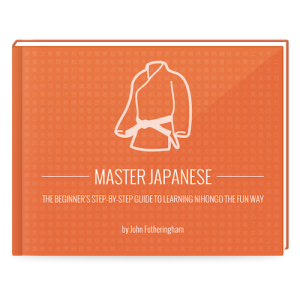 After 6 months of sleep deprivation, coffee IV drips, and a few “why-do-I-keep-doing-this-to-myself” existential crises, I have finally finished a massive update of my comprehensive Japanese learning guide, Master Japanese: The Beginner’s Step-by-Step Guide to Learning Nihongo the Fun Way.
After 6 months of sleep deprivation, coffee IV drips, and a few “why-do-I-keep-doing-this-to-myself” existential crises, I have finally finished a massive update of my comprehensive Japanese learning guide, Master Japanese: The Beginner’s Step-by-Step Guide to Learning Nihongo the Fun Way.
 Ellen Jovin is variously described as a “linguaphile”, a “language-crazed writer”, a “grammar freak”, a “former freelance writer”, and a professional trainer specializing in communication skills. On the first of July in 2009, Ellen began an impressive language and culture project called “Words & Worlds of New York” with the goal exploring the myriad languages spoken in The Big Apple. In her own words, she started the massive undertaking because:
Ellen Jovin is variously described as a “linguaphile”, a “language-crazed writer”, a “grammar freak”, a “former freelance writer”, and a professional trainer specializing in communication skills. On the first of July in 2009, Ellen began an impressive language and culture project called “Words & Worlds of New York” with the goal exploring the myriad languages spoken in The Big Apple. In her own words, she started the massive undertaking because:
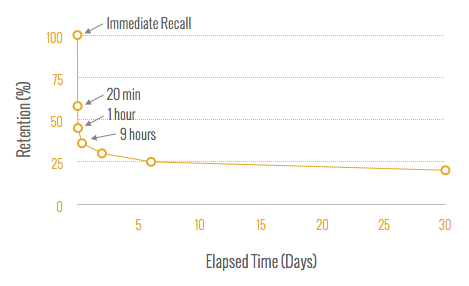
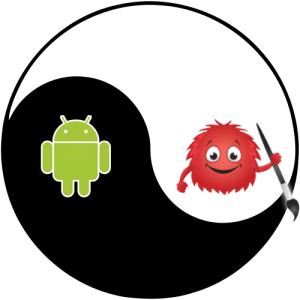 If you are learning Japanese and/or Mandarin Chinese and have an Android device, I highly recommend checking out Skritter’s new public beta app. As I mention in my review of Skritter, they offer one of the best tools for learning Chinese characters. Instead of traditional flashcards that just test passive recognition, the Skritter site and apps require that you actually write out the characters on the screen or using your mouse/trackpad. This “active recall” approach is far more effective than the self-gradings used in other spaced repetition apps. And best of all, in cases when you have no idea how to write a character, Skritter provides nifty stroke by stroke hints to help you along.
If you are learning Japanese and/or Mandarin Chinese and have an Android device, I highly recommend checking out Skritter’s new public beta app. As I mention in my review of Skritter, they offer one of the best tools for learning Chinese characters. Instead of traditional flashcards that just test passive recognition, the Skritter site and apps require that you actually write out the characters on the screen or using your mouse/trackpad. This “active recall” approach is far more effective than the self-gradings used in other spaced repetition apps. And best of all, in cases when you have no idea how to write a character, Skritter provides nifty stroke by stroke hints to help you along.
 Stephen Krashen is one of my heroes. He is a linguist, researcher, education activist, and professor emeritus at the University of Southern California. I have wanted to meet him since I began studying linguistics in university, and finally had my chance at Ming Chuan University’s 2009 “Annual Conference on Applied Linguistics” in Taipei, Taiwan. He then agreed to conduct the following interview via email.
Stephen Krashen is one of my heroes. He is a linguist, researcher, education activist, and professor emeritus at the University of Southern California. I have wanted to meet him since I began studying linguistics in university, and finally had my chance at Ming Chuan University’s 2009 “Annual Conference on Applied Linguistics” in Taipei, Taiwan. He then agreed to conduct the following interview via email. With seven languages under his linguistic belt and an academic background in Applied Linguistics, Olly Richards of IWillTeachYouaLanguage.com has proven that he can both talk the talk and walk the walk. His infectious passion for all things language is a breath of fresh air in the increasingly cynical language learning blogosphere. In the interview, we discuss the under-appreciated importance of psychology in language learning, how he has had to alter his approach to language learning now that he is learning a language in country where it isn’t widely spoken (Cantonese in Qatar of all places!), his experience participating in Brian Kwong’s +1 Challenge (an approach he lovingly refers to as “crowdsourced motivation”), the role of teachers in language education, and the power of “negotiated syllabi”.
With seven languages under his linguistic belt and an academic background in Applied Linguistics, Olly Richards of IWillTeachYouaLanguage.com has proven that he can both talk the talk and walk the walk. His infectious passion for all things language is a breath of fresh air in the increasingly cynical language learning blogosphere. In the interview, we discuss the under-appreciated importance of psychology in language learning, how he has had to alter his approach to language learning now that he is learning a language in country where it isn’t widely spoken (Cantonese in Qatar of all places!), his experience participating in Brian Kwong’s +1 Challenge (an approach he lovingly refers to as “crowdsourced motivation”), the role of teachers in language education, and the power of “negotiated syllabi”.
 Keith Brooks is the man behind Pardon My Norwegian, a site dedicated to “everything cool from Norway from the eyes of a Kentuckian”. Prior to “marrying” the Norwegian language, Keith sampled a number of a potential languages in a project called 37 Languages. His “speed dating” or “taste testing” approach to choosing just the right “significant linguistic other” got picked up by PRI’s The World in 2009 (“Blogging the Love of Language“), and Keith was asked back again in 2010 to report on which language he finally chose to settle down with (“A Language Speed-Dater Gets Serious“).
Keith Brooks is the man behind Pardon My Norwegian, a site dedicated to “everything cool from Norway from the eyes of a Kentuckian”. Prior to “marrying” the Norwegian language, Keith sampled a number of a potential languages in a project called 37 Languages. His “speed dating” or “taste testing” approach to choosing just the right “significant linguistic other” got picked up by PRI’s The World in 2009 (“Blogging the Love of Language“), and Keith was asked back again in 2010 to report on which language he finally chose to settle down with (“A Language Speed-Dater Gets Serious“).

 I’ve already written many tens of thousands of words about how to learn Japanese using modern online tools, so it’s time to let someone else share their point of view on the subject. In this guest post, Saravanaa Vijay from Lang-8 (which happens to be one of my favorite online language learning tools!) discusses the advantages and disadvantages of learning languages online, and why Lang-8 should part of any language learner’s online arsenal.
I’ve already written many tens of thousands of words about how to learn Japanese using modern online tools, so it’s time to let someone else share their point of view on the subject. In this guest post, Saravanaa Vijay from Lang-8 (which happens to be one of my favorite online language learning tools!) discusses the advantages and disadvantages of learning languages online, and why Lang-8 should part of any language learner’s online arsenal.
 The latest episode of Freakonomics Radio really caught the attention of this language nerd. Titled “Is Learning a Foreign Language Worth It?“, the episode looks at the economic benefits and opportunity costs of learning a foreign language. At first glance (or rather, first listen), the economists they interview seem to make a pretty strong case against teaching foreign languages in U.S. schools:
The latest episode of Freakonomics Radio really caught the attention of this language nerd. Titled “Is Learning a Foreign Language Worth It?“, the episode looks at the economic benefits and opportunity costs of learning a foreign language. At first glance (or rather, first listen), the economists they interview seem to make a pretty strong case against teaching foreign languages in U.S. schools:

 Susanna Zaraysky is a self-proclaimed “language geek”, a speaker of 7 languages, and the author of Language is Music: Over 100 Fun & Easy Tips to Learn Foreign Languages. She has been featured on CBS, BBC Radio, CNN, NBC, and Univision, and now thanks to me, the world’s most famous podcast! Just kidding. In our interview, we discuss the weaknesses of traditional language education, the power of music in language acquisition, the importance of developing a resonance for one’s target language and culture, and the fact that you can learn any language, anywhere.
Susanna Zaraysky is a self-proclaimed “language geek”, a speaker of 7 languages, and the author of Language is Music: Over 100 Fun & Easy Tips to Learn Foreign Languages. She has been featured on CBS, BBC Radio, CNN, NBC, and Univision, and now thanks to me, the world’s most famous podcast! Just kidding. In our interview, we discuss the weaknesses of traditional language education, the power of music in language acquisition, the importance of developing a resonance for one’s target language and culture, and the fact that you can learn any language, anywhere.


 Howdy Language Mastery-ites! I’ve got a quick—but extremely important—question for all of you: How can I be of more help?
Howdy Language Mastery-ites! I’ve got a quick—but extremely important—question for all of you: How can I be of more help? Have you been studying a language for a few months, years, or even decades, but aren’t seeing any noticeable progress?
Have you been studying a language for a few months, years, or even decades, but aren’t seeing any noticeable progress? Though you can learn foreign languages quite well right in your home country using free online tools like Skype, YouTube, language exchange sites like
Though you can learn foreign languages quite well right in your home country using free online tools like Skype, YouTube, language exchange sites like  “Be present. Accept the moment as it is.” Yah, great advice in theory, but doesn’t this lead to apathy and laziness? Absolutely not.
“Be present. Accept the moment as it is.” Yah, great advice in theory, but doesn’t this lead to apathy and laziness? Absolutely not. “It is not a daily increase, but a daily decrease. Hack away at the inessentials.” ~Bruce Lee
“It is not a daily increase, but a daily decrease. Hack away at the inessentials.” ~Bruce Lee It is all too easy to get intimidated (and depressed!) by the myriad steps required in big undertakings like learning a language or transforming one’s body. The key is to focus not on the distance between here and your final goal, but on just one—and only one—step at a time.
It is all too easy to get intimidated (and depressed!) by the myriad steps required in big undertakings like learning a language or transforming one’s body. The key is to focus not on the distance between here and your final goal, but on just one—and only one—step at a time. “When I was a boy of 14, my father was so ignorant I could hardly stand to have the old man around. But when I got to be 21, I was astonished at how much the old man had learned in seven years.” ~Mark Twain
“When I was a boy of 14, my father was so ignorant I could hardly stand to have the old man around. But when I got to be 21, I was astonished at how much the old man had learned in seven years.” ~Mark Twain I am a serious Japanophile. But my love of Japanese culture, history, martial arts, food, anime, manga, literature, architecture, gardens, and music do not blind me to the country’s many modern problems and past atrocities. Appreciating and respecting a culture does not mean liking or supporting every part of it. The same exact thing is true for my home country, the United States. I love the creativity, ingenuity, and strong individuality found in American culture, and am proud of our many contributions to the arts and sciences. But this pride doesn’t mean I must ignore:
I am a serious Japanophile. But my love of Japanese culture, history, martial arts, food, anime, manga, literature, architecture, gardens, and music do not blind me to the country’s many modern problems and past atrocities. Appreciating and respecting a culture does not mean liking or supporting every part of it. The same exact thing is true for my home country, the United States. I love the creativity, ingenuity, and strong individuality found in American culture, and am proud of our many contributions to the arts and sciences. But this pride doesn’t mean I must ignore: Everyone knows that eating right and getting enough exercise are important for vitality and longevity, but what we eat and how much we move our bodies also
Everyone knows that eating right and getting enough exercise are important for vitality and longevity, but what we eat and how much we move our bodies also  “Money can’t buy happiness, but it can help make the down payment.” ~Jack Saad
“Money can’t buy happiness, but it can help make the down payment.” ~Jack Saad I guess this makes me a hypocrite because this is the last lesson in my list and is probably the most important. ; )
I guess this makes me a hypocrite because this is the last lesson in my list and is probably the most important. ; )

 Social media. Business marketers and political parties use it as a means of promoting their products, services, and campaigns. Others use it to discuss health and social issues. But social media is as an educational tool, too, and can provide a great opportunity for facilitating language learning. Below, I share how you can learn a foreign language better by immersing yourself via social media networks, plus some powerful little features that you might not know about.
Social media. Business marketers and political parties use it as a means of promoting their products, services, and campaigns. Others use it to discuss health and social issues. But social media is as an educational tool, too, and can provide a great opportunity for facilitating language learning. Below, I share how you can learn a foreign language better by immersing yourself via social media networks, plus some powerful little features that you might not know about.
 Language ability obviously starts in the brain, and so we should do everything we can to maximize this organ’s functionality. Poor nutrition and a sedentary lifestyle narrow your body’s arteries and increase inflammation, restricting how much blood (and by extension, how much oxygen) reaches your brain. In addition to the obvious health risks, this also greatly diminishes your ability to learn, think, and remember.
Language ability obviously starts in the brain, and so we should do everything we can to maximize this organ’s functionality. Poor nutrition and a sedentary lifestyle narrow your body’s arteries and increase inflammation, restricting how much blood (and by extension, how much oxygen) reaches your brain. In addition to the obvious health risks, this also greatly diminishes your ability to learn, think, and remember.
 To do lists seem like a good idea in theory, but they have one major disadvantage: there is an infinite number of potential to do items. With this in mind, Timothy Ferriss, best-selling author of
To do lists seem like a good idea in theory, but they have one major disadvantage: there is an infinite number of potential to do items. With this in mind, Timothy Ferriss, best-selling author of  Any language app or system worth its mustard should incorporate “spaced repetition” (intelligently scheduled repetitions that help maximize retention by re-showing you information right before you are about to forget it), and Skritter delivers the goods. Unlike competing spaced repetition apps which rely solely on self-reported difficulty scores, Skritter requires you to physically write target Chinese characters on your iPhone, iPod touch, or iPad to demonstrate that you actually know them. This is especially important when learning kanji/hanzi since it is far too easy to self-report that you “know” a character when you have simply reached a level of passive recognition but not true mastery.
Any language app or system worth its mustard should incorporate “spaced repetition” (intelligently scheduled repetitions that help maximize retention by re-showing you information right before you are about to forget it), and Skritter delivers the goods. Unlike competing spaced repetition apps which rely solely on self-reported difficulty scores, Skritter requires you to physically write target Chinese characters on your iPhone, iPod touch, or iPad to demonstrate that you actually know them. This is especially important when learning kanji/hanzi since it is far too easy to self-report that you “know” a character when you have simply reached a level of passive recognition but not true mastery.
 With Michel Thomas’ passing on January 8, 2005, the world lost one of the best language learners and teachers to ever live. And live he did. Born to wealthy Jewish factory owners in Poland, Michel (born Moniek Kroskof) was sent to live in Germany when growing antisemitism began to limit his opportunities at home. He later studied in France and Austria, but as history shows, none of these countries were safe from the spread of Nazism. Michel joined the French Resistance (at which time he changed his name), but was later caught and interned by the Nazis. After surviving not just one, but multiple Nazi concentration camps, he went on to work with the U.S. Army Counter Intelligence Corps to fight his former captors, a duty for which he was awarded the Silver Star in 2004. Just as the awful reality of internment led Viktor Frankl to uncover the true human power, so too it did for Michel, who states:
With Michel Thomas’ passing on January 8, 2005, the world lost one of the best language learners and teachers to ever live. And live he did. Born to wealthy Jewish factory owners in Poland, Michel (born Moniek Kroskof) was sent to live in Germany when growing antisemitism began to limit his opportunities at home. He later studied in France and Austria, but as history shows, none of these countries were safe from the spread of Nazism. Michel joined the French Resistance (at which time he changed his name), but was later caught and interned by the Nazis. After surviving not just one, but multiple Nazi concentration camps, he went on to work with the U.S. Army Counter Intelligence Corps to fight his former captors, a duty for which he was awarded the Silver Star in 2004. Just as the awful reality of internment led Viktor Frankl to uncover the true human power, so too it did for Michel, who states:

 In my interview with Jason West, the creator of English Out There, we discuss the weaknesses of traditional English schools, methodologies, and materials, and how his approach aims to overcome them. I especially enjoyed his effective, no-nonsense approach to language learning, his efforts to bridge the gap between traditional classroom-based learning and independent study, and his willingness to share before-and-after speech samples of his students.
In my interview with Jason West, the creator of English Out There, we discuss the weaknesses of traditional English schools, methodologies, and materials, and how his approach aims to overcome them. I especially enjoyed his effective, no-nonsense approach to language learning, his efforts to bridge the gap between traditional classroom-based learning and independent study, and his willingness to share before-and-after speech samples of his students.
 Arkady Zilberman, creator of Language Bridge and a former simultaneous interpreter in Russia, addresses what is perhaps the greatest impediment to adult foreign language learning success: cross-translation to and from one’s native language. Few learners are probably aware this sub-concious process goes on at all, but Arkady’s extensive experience learning languages, interpreting, and experimenting on himself and other learners have proven that it does indeed occur. As he points out in our interview, even many seemingly successful foreign language learners still translate to and from their native language, but can just do so at such a rate that they can’t perceive the process.
Arkady Zilberman, creator of Language Bridge and a former simultaneous interpreter in Russia, addresses what is perhaps the greatest impediment to adult foreign language learning success: cross-translation to and from one’s native language. Few learners are probably aware this sub-concious process goes on at all, but Arkady’s extensive experience learning languages, interpreting, and experimenting on himself and other learners have proven that it does indeed occur. As he points out in our interview, even many seemingly successful foreign language learners still translate to and from their native language, but can just do so at such a rate that they can’t perceive the process.

 2nd Place: Apple iPad & iBooks
2nd Place: Apple iPad & iBooks Randy Hunt is on a mission to learn a new language fluently every year. His current project is Italian, with Lithuanian as a side-project saved for weekend fun. Randy has his language-learning head screwed on tightly, and I firmly agree with his contention that learners can reach “conversational fluency” (the ability to talk with native speakers on a variety of topics) in a year if you spend enough time doing the right things. As we both have observed, most learners neither spend enough time nor do the right things.
Randy Hunt is on a mission to learn a new language fluently every year. His current project is Italian, with Lithuanian as a side-project saved for weekend fun. Randy has his language-learning head screwed on tightly, and I firmly agree with his contention that learners can reach “conversational fluency” (the ability to talk with native speakers on a variety of topics) in a year if you spend enough time doing the right things. As we both have observed, most learners neither spend enough time nor do the right things.
 In this interview with Clint Schmidt, LiveMocha’s [former] Vice President of Marketing and Product, he shares what he thinks makes LiveMocha unique and he introduces some exciting new products coming down the pipe. He also responds to some of my grilling questions about the role of grammar in language learning. To learn more about LiveMocha, check out my review of the site’s pros and cons.
In this interview with Clint Schmidt, LiveMocha’s [former] Vice President of Marketing and Product, he shares what he thinks makes LiveMocha unique and he introduces some exciting new products coming down the pipe. He also responds to some of my grilling questions about the role of grammar in language learning. To learn more about LiveMocha, check out my review of the site’s pros and cons.
 In his own words, Dr. Orlando Kelm is “a lucky guy” professionally. Not only does he get to spend his time with two languages (Spanish and Portuguese), but he is also the Associate Director of Business Language Education for the UT CIBER (Center for International Business Education and Research, a part of the McCombs School of Business. He is also author of a new book on intercultural relations called When We Are the Foreigners. In our interview, Dr. Kelm shares what he believes to be the 6 most important factors in effective language learning.
In his own words, Dr. Orlando Kelm is “a lucky guy” professionally. Not only does he get to spend his time with two languages (Spanish and Portuguese), but he is also the Associate Director of Business Language Education for the UT CIBER (Center for International Business Education and Research, a part of the McCombs School of Business. He is also author of a new book on intercultural relations called When We Are the Foreigners. In our interview, Dr. Kelm shares what he believes to be the 6 most important factors in effective language learning.
 With 11 languages under his belt, Steve Kaufmann is an extremely accomplished language learner. His extensive language learning wisdom in shared in his book titled The Way of the Linguist: A Language Learning Odyssey and his online language learning system called LingQ. On top of all this, Steve maintains an informative blog well worth checking out. There he shares his views on language learning and other topics of interest. Many of the articles stir up quite a debate and it is enjoyable to go through the comments to see the vast array of viewpoints.
With 11 languages under his belt, Steve Kaufmann is an extremely accomplished language learner. His extensive language learning wisdom in shared in his book titled The Way of the Linguist: A Language Learning Odyssey and his online language learning system called LingQ. On top of all this, Steve maintains an informative blog well worth checking out. There he shares his views on language learning and other topics of interest. Many of the articles stir up quite a debate and it is enjoyable to go through the comments to see the vast array of viewpoints.
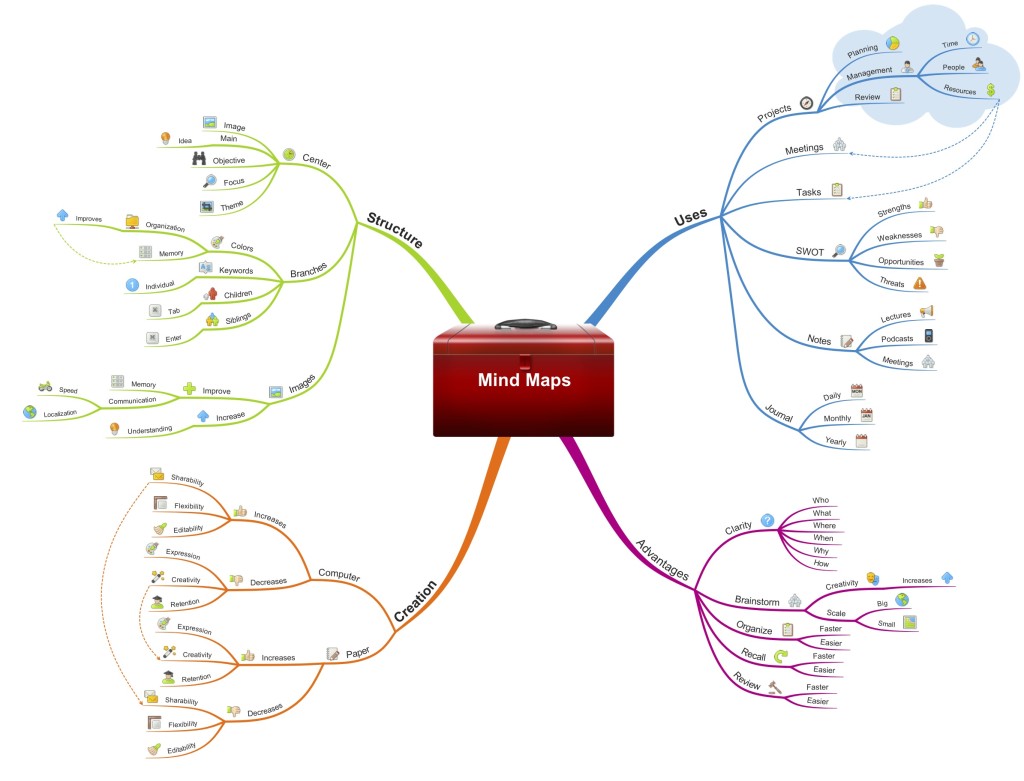
 Author, linguist, and fighter Antonio Graceffo “pulls no punches” (pun intended) when sharing his views on how to learn a foreign language effectively. His language learning wisdom stems from formal training as an interpreter and translator at Germany’s prestigious University of Mainz, coupled with over a decade of living, learning, and working in South and East Asia. Antonio speaks numerous languages (French, German, Italian, Khmer, Mandarin Chinese, Spanish, Thai and Vietnamese), and has used his language skills to good ends. On top of a stunning trail of articles and books (see the list below), Antonio continues to fight the human rights atrocities in Burma.
Author, linguist, and fighter Antonio Graceffo “pulls no punches” (pun intended) when sharing his views on how to learn a foreign language effectively. His language learning wisdom stems from formal training as an interpreter and translator at Germany’s prestigious University of Mainz, coupled with over a decade of living, learning, and working in South and East Asia. Antonio speaks numerous languages (French, German, Italian, Khmer, Mandarin Chinese, Spanish, Thai and Vietnamese), and has used his language skills to good ends. On top of a stunning trail of articles and books (see the list below), Antonio continues to fight the human rights atrocities in Burma.
 The term “Multiple Intelligences” was first coined by Harvard psychologist Howard Gardner. His theory is spelled out in the 1983 book, Frames of Mind: The Theory of Multiple Intelligences. In the book, Gardner posits that humans possess many varied types of intelligence, not just one. This stands in stark contrast to IQ and standardized testing, both of which look at intelligence as a one-dimensional concept: you either have it or you don’t. While Gardners’s work is still somewhat controversial, I think it is a helpful way to frame intelligence and useful tool for choosing effective language learning methods and materials for oneself.
The term “Multiple Intelligences” was first coined by Harvard psychologist Howard Gardner. His theory is spelled out in the 1983 book, Frames of Mind: The Theory of Multiple Intelligences. In the book, Gardner posits that humans possess many varied types of intelligence, not just one. This stands in stark contrast to IQ and standardized testing, both of which look at intelligence as a one-dimensional concept: you either have it or you don’t. While Gardners’s work is still somewhat controversial, I think it is a helpful way to frame intelligence and useful tool for choosing effective language learning methods and materials for oneself.
 Michael Heim (1943-2012) was a highly respected professor of Slavic languages at UCLA. He spoke 10 languages (though he claimed that the number is hard to tie down due to the slippery political nature of language-dialect distinctions). Heim believed that effective language learning must begin (and progress) with a specific purpose in mind; he never learned a language just for the heck of it. In a two-part interview posted on the UCLA Center for World Languages website, he explains why language experts produce poor textbooks, what he would do as “Langauge Czar” if such a position were to be created, and why Americans tend to do poorly in second language learning.
Michael Heim (1943-2012) was a highly respected professor of Slavic languages at UCLA. He spoke 10 languages (though he claimed that the number is hard to tie down due to the slippery political nature of language-dialect distinctions). Heim believed that effective language learning must begin (and progress) with a specific purpose in mind; he never learned a language just for the heck of it. In a two-part interview posted on the UCLA Center for World Languages website, he explains why language experts produce poor textbooks, what he would do as “Langauge Czar” if such a position were to be created, and why Americans tend to do poorly in second language learning.